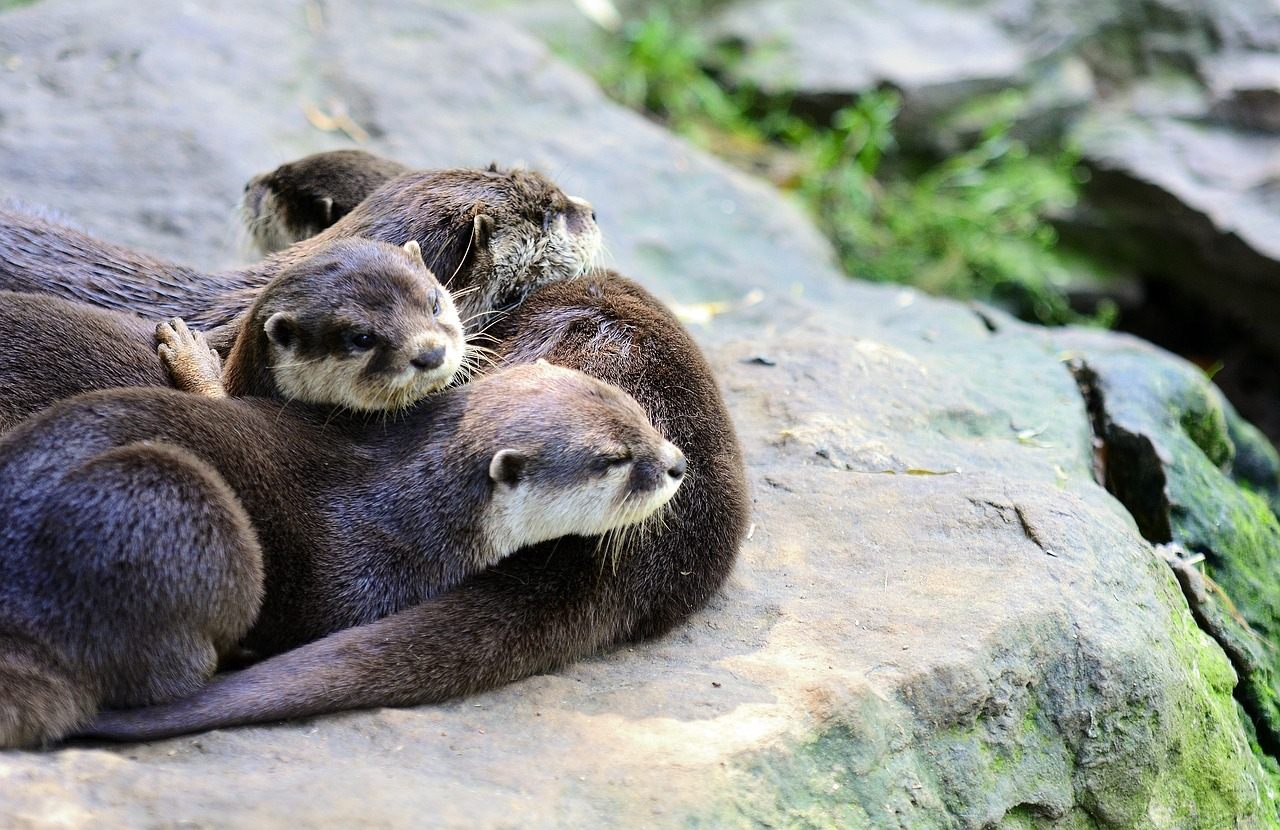The Regional Scent Dialects That Help Otters Tell Friends From Strangers
You can learn a lot about someone from their accent.

From the sound of person’s voice, you might be able to glean information as disparate as their age, their sex—perhaps even their height or sex appeal. An accent or dialect tells other people where you’ve come from, where you’ve spent time, even what socioeconomic class you are. Otters, it turns out, have something similar—a particular regional flavor that differentiates one group of otters from the next. But rather than booming out of their chirruping voice boxes, an otter’s “dialect” comes from its anal scent glands.
Lots of animals use their scent glands to communicate information about their sex and age, said lead researcher Elizabeth Chadwick from Cardiff University in a statement. But this new study, published in Scientific Reports, reveals that otters’ odors might also reveal genetic differences—and that one group of otters might be unable to understand another’s scent accent. “In the same way that people from London may not understand some of the verbal dialect of people from Cardiff,” she said, “groups of otters with different odour dialects may not be able to pick up identifying information from each other.”
Otters live in communities of between 10 and 100 animals, called rafts. Across the United Kingdom, each raft, the study found, has its own entirely distinct “odor dialect.” Perhaps surprisingly, nearby otter groups don’t necessarily have more-similar dialects. In fact, some neighboring rafts had odor dialects that were even more different than those further away from each other, suggesting that they might be used to differentiate one group from the other. (Other animals have more literal dialects, with eastern and western hermit thrush populations singing their songs entirely differently.)
So, what’s the point for these otters? Researchers say they don’t yet know quite how otters interpret these chemical differences. If they don’t like or understand different odor dialects, they might avoid interacting with “alien” otters, in much the same way that people will sometimes avoid those from a different country, city or socioeconomic class. But given that genetic diversity makes for healthier offspring, it makes sense that they should seek out unfamiliar smelling otters, and their sexy foreign accents—even if they are sometimes a little hard to understand.





















Follow us on Twitter to get the latest on the world's hidden wonders.
Like us on Facebook to get the latest on the world's hidden wonders.
Follow us on Twitter Like us on Facebook